As the warm weather approaches, so does termite swarming season in Florida. For homeowners, understanding when and why these pesky insects swarm is crucial for protecting one’s property from potential damage. In this blog post, we’ll delve into the specifics of termite swarming season in Florida, the types of termites you may encounter, and effective strategies for termite prevention and control.
Understanding Termite Swarming Season in Florida
Termite swarming season typically occurs during the spring months in Florida, although it can vary depending on factors such as temperature and humidity. In Florida, subterranean termites, drywood termites, and Formosan termites are the most common types found.
- Subterranean Termites: These termites often swarm in the spring, usually after a rain shower, when temperatures are warm and humid.
- Drywood Termites: Drywood termites are known to swarm during the late spring or early summer months. They typically emerge during the daytime and are attracted to light sources.
- Formosan Termites: Formosan termites, also known as super termites, have a longer swarming season, usually spanning from late spring to early summer. They are highly destructive and can cause extensive damage to wooden structures.
What You Should Know About Swarming Termites
Termite swarming is the process by which reproductive termites leave their colonies to establish new ones. Swarming termites are often mistaken for flying ants, but there are distinct differences between the two. Termites have straight antennae, a uniform waist, and equal-sized wings, while ants have bent antennae, a narrow waist, and forewings larger than hindwings.
It’s important to note that while swarming termites themselves do not cause damage to structures, they indicate the presence of a nearby colony, which can lead to costly infestations if left unchecked.
Protecting Your Home from Termites
- Schedule Regular Inspections: Routine inspections by a professional termite control company can help detect early signs of termite activity and prevent infestations before they escalate.
- Reduce Moisture: Termites are attracted to moisture, so it’s essential to address any leaks or standing water around your home. Ensure proper ventilation in crawl spaces and attics to reduce humidity levels.
- Eliminate Wood-to-Soil Contact: Termites thrive in environments where wood comes into direct contact with soil. Keep firewood, lumber, and mulch away from the foundation of your home.
Don’t wait until it’s too late to protect your home from termites. Contact a pest control company near you today for a free termite control quote. A team of experienced professionals will assess your property and recommend customized solutions to safeguard your home against these destructive pests.
Don’t let termite swarming season catch you off guard. Take proactive steps to protect your home and ensure peace of mind for years to come. Schedule your free termite control quote today!


